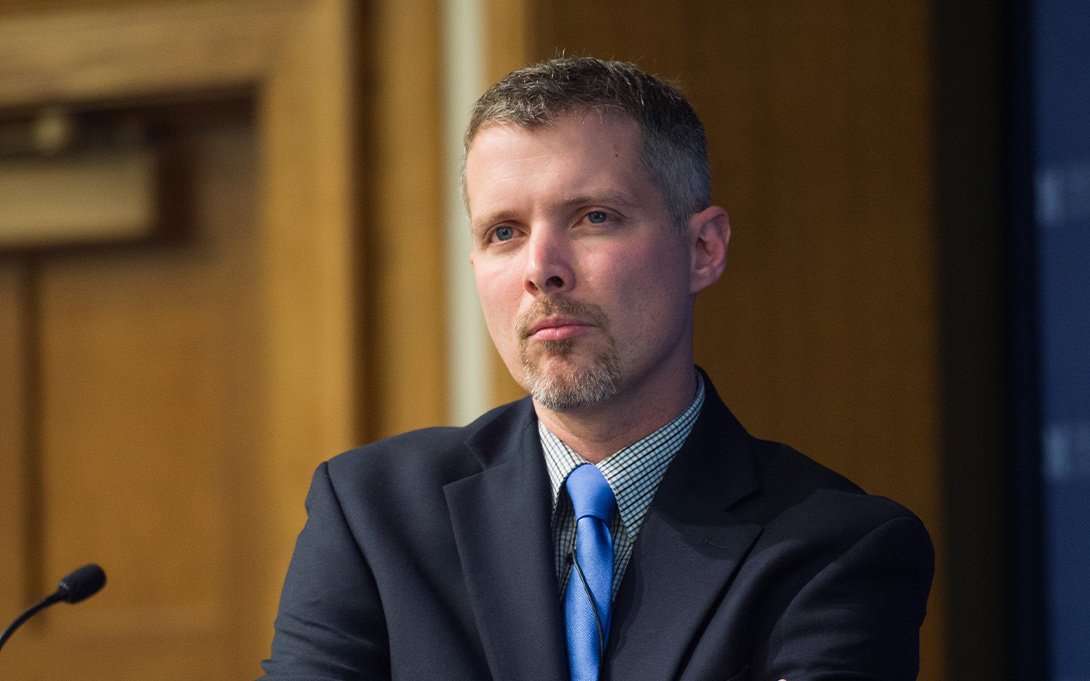
Luke Shaefer is the director of Poverty Solutions, a university-wide initiative that partners hundreds of University of Michigan faculty experts and student researchers with community organizations and policymakers to alleviate poverty. Shaefer said about 50% of its work is in the city of Detroit, where Poverty Solutions has provided critical expertise in such areas as tax foreclosure, public health and auto insurance reform. Shaefer detailed some of that work in a recent interview.
What was the impetus for creating Poverty Solutions?
It began as a presidential initiative, actually. In 2016, there was a committee formed to put together a charge for an initiative on poverty. It was a wonderful committee with folks from all across the university who decided it was time to build on a really long and proud tradition of basic research on poverty, to now have a much more engaged program that would partner with communities and really try to test out strategies. So the mission was formed to partner with communities and policymakers to find new ways to prevent and alleviate poverty.
What have been some of those partnerships?
It was in the first year or two that we formed a partnership with Detroit Mayor Mike Duggan and his administration in the city called the Partnership on Economic Mobility. I think a lot of our most impactful work has been done in partnership with the mayor’s office and with the different city departments. We’ve done a great deal with housing and revitalization. We’ve worked a great deal with workforce development and with public health. So a lot of how we live out our mission happens in the city of Detroit.
What are some of the projects you’ve done that you’re most proud of?
Everything we work on is done in deep partnership with community groups and policymakers. We played a role in an innovative program called Make It Home. It was a partnership with amazing community-based organizations, the city of Detroit and the Rocket Community Fund to provide a path to home ownership for renters in homes that were going to be lost to tax foreclosure. Tax foreclosure has been a huge issue in the city of Detroit. This was sort of a proactive way to counter some of those challenges with a broad-based coalition. We were part of the idea development and we’ve been a part of evaluating the impact.
Our research also helped inform a new $13 million eviction prevention effort that’s happening in the city that we’re really excited about.
Our work really helped inform the state’s understanding of how high auto insurance rates were and how difficult it was to secure auto insurance in the city, as well as the state. And it’s been credited with being influential in the 2019 auto insurance reform that occurred. That reform has brought rates down somewhat, although it still left some big issues on the table. Broadly speaking, we’re really trying to use evidence that will make tangible changes in the world that will empower families to live healthy and productive lives.
What are some of the new projects you’re working on this year?
We are continuing to be a thought partner on the city’s Community Health Corps. We have a pretty big scope of work around eviction. We have some scholars who are deeply involved in how courts process evictions and what’s happening to the tenants.
We’re doing a lot of work around helping to develop a big roof repair program in the city. And we’re also playing a role in coordinating lead abatement efforts in the city, which is a big issue. All those things are ongoing.
Michigan recently raised the earned income tax credit from 6% to 30% of the federal credit. What impact do you think this will have on easing poverty in the state?
The EITC (Michigan calls it the Working Families Tax Credit) is one of the very best-evaluated and clearly successful public benefits programs we have. We can see lots of positive poverty reduction and other sorts of impacts on improving well-being.
Poverty Solutions has been a part of a lot of work to simplify the process of accessing public benefits, make it easier for families to know what they’re eligible for, and navigate the process so they can get to spend more time on the work of doing what they need to do for their families.
I think that the increase in the Working Families Tax Credit is a really great start, and there’s lots of ways, small, medium and large, that the state can continue to use evidence to make our programs work better for families in need.
This story was written by Rick Haglund of Michigan News.
